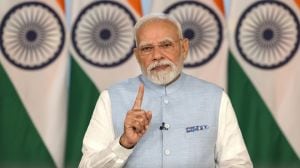Joe vs Kalawati
Exploring the space for moving life stories in our political campaigns

In the final American presidential debate, Barack Obama and John McCain sparred over who was a better buddy to Joe the Plumber. Joe, unlike his six-pack-carrying namesake, actually exists, selling toilets in small-town Ohio. During a campaign stop, he asked Obama why he was being taxed for “fulfilling the American dream”.
McCain — magisterially overlooking the fact that with an income of $250,000 a year, the sanitary entrepreneur Joe Wurzelbacher is far from average — used Joe’s confrontation with Obama to illustrate that by giving tax cuts to the middle-class, he would be a better friend to Joe.
American politicians love personal stories. In his speeches, Obama refers to a young white girl who shared her passion to change America with a much older black volunteer. He also relies on the personal, hopeful, audacities of various family members. Though McCain prefers the more general “my friends”, his running mate Sarah Palin has proclaimed kinship with “people of Joe six-pack like me” and “hockey moms”. Even Ronald Reagan, when attacking welfare, used the racially loaded term “Cadillac queens” to describe those who defraud the welfare system.
Indian politicians prefer to dwell on their own stories. The personality cults around politicians like Mayawati, Narendra Modi and Chiranjeevi are narratives in themselves. The space for Joe the Plumber is filled with slogans: from the cleverly banal “garabi hatao” and “aam aadmi”, to the ill-timed “India Shining”. And, during the recent no-confidence debate over the nuclear deal, Rahul Gandhi referred to the plight of Kalawati, a poor Vidharba widow struggling to provide for her nine children after her farmer-husband committed suicide. Alas, Raju the Plumber is still some distance from dominating Indian political debate.
Photos





- 01
- 02
- 03
- 04
- 05

























